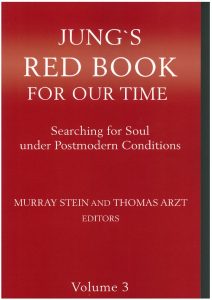An essay in English by Professor Toshio Kawai was published in Volume 3 of the series Jung’s Red Book for Our Time: Searching for Soul Under Postmodern Conditions.
An essay in English by Professor Toshio Kawai was published in Volume 3 of the series Jung’s Red Book for Our Time: Searching for Soul Under Postmodern Conditions. This book series shows the contemporary meaning and value of Jung’s The Red Book. Volume 3 contains essays by 18 prominent Jungian analysts and academics from different cultural backgrounds. It reviews how The Red Book can be used to help people in postmodern societies explore their souls.

Book:
Toshio Kawai. (2019). From Internal to Open Psyche: Overcoming Modern Consciousness? Jung’s Red Book for Our Time. Asheville: Chiron Publications, pp. 163-178.
<Contents>
Evaluation of The Red Book
Position of the Ego or Vision Ego
From Tragedy to Comedy
Doubled Opposites
Internalization
From Symbol to Directness: Sacrifice
From Internal to Open Psyche
Difference from the Premodern Worldview and a New Psychology
In this essay, Prof. Kawai comments on the historical significance of The Red Book. He discusses how Jung arrived at his psychological theories and provides an analysis of several materials. In contrast to the classical approach of interpreting these materials symbolically, he analyzes their formal characteristics and the structure of the psyche.
The Red Book begins with a barrage of images and visions that describe Jung’s strong feelings of anxiety or fear about losing himself. Prof. Kawai says that when we look at this section with an eye towards the structure of the psyche, we should pay attention to the fact that the position of the ego was never lost and Jung maintained his strong consciousness.
The power of traditional rites and symbols, which preserved God’s existence, had already been lost in Jung’s time. However, the materials in The Red Book show that Jung internalized God into the individual psyche as a fantasy instead of as a ritual or a ceremony. Prof. Kawai says this act of “internalization” is important because it makes a clear distinction between the internal reality of the individual’s mind and the external reality of the material world.
In this way, we can see that, although The Red Book dealt with myths and premodern material, it was written with a modern understanding of the psyche that includes concepts such as “internalization” and “self-relation”, which capture the relationship between the ego and the unconscious from an egocentric viewpoint.
However, Prof. Kawai states that the third part of The Red Book transcends the structure of modern psyche and looks at mental states that go beyond the modern understanding of “an inwardly closed mind limited to each individual.” For example, some of the materials in The Red Book deal with issues in which the body plays a central role, such as sacrifice and amputation. Such scenes also occur frequently in the works of Haruki Murakami, one of the foremost writers of our time. It is thought that in this age, when ceremonies and symbols based on community and tradition have lost their power, “numinous experience” (a religious experience of something sacred) can be experienced directly and without clear meaning through violence and sex.
Prof. Kawai says that Jung’s concepts of “synchronism” and the “psychoid” seem similar to the pre-modern worldview, in the sense of a psyche that is open to a community, nature, and the world of death, but that they are very different because the mythology of death has been lost today.
Prof. Kawai concludes by discussing how at the beginning of the third part of The Red Book, Jung completely rejected the idea of emphasizing the ego as a starting point, saying, “Now hear: I begin with nothingness.” He concludes that a re-evaluation of The Red Book from a structural perspective will lead to the development of “new psychology” in the field of analytical psychology.
(Reported by: Hisae Konakawa, Program-Specific Research Fellow)
Book information:
Jung’s Red Book for Our Time: Searching for Soul Under Postmodern Conditions Volume 3
Edited by Murray Stein and Thomas Arzt
Publisher: Chiron Publications (2019)
Hardcover: 410 pages
ISBN-13: 978-1-63051-716-8
Publisher’s link (English):
2019/08/28